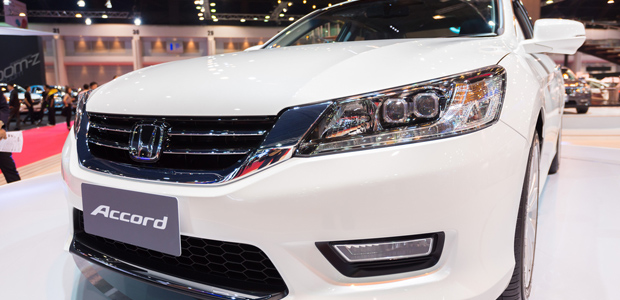
DOT Fines American Honda Motor Co. $70 Million for Failing to Report Deaths and Injuries
NHTSA also announced it issued more fines in 2014 than in its entire 43-year history.
The National Highway Traffic Safety Administration announced Jan. 8 that American Honda Motor Company, Inc. will pay two $35 million civil penalties, for a total of $70 million, for failing to report deaths, injuries, and certain warranty claims to the federal government as required by the early warning reporting regulation in the TREAD Act. American Honda also has agreed to increased NHTSA oversight and third-party audits to ensure that all required reporting is completed now and into the future.
"Honda and all of the automakers have a safety responsibility they must live up to – no excuses," said U.S. Transportation Secretary Anthony Foxx. "Last year alone, we issued more fines than in NHTSA's entire history. These fines reflect the tough stance we will take against those who violate the law and fail to do their part in the mission to keep Americans safe on the road."
NHTSA's penalties last year totaled more than $126 million, more than the total amount assessed during NHTSA's entire 43-year history, according to the agency.
The automaker posted a statement acknowledging the penalties and stating its plan moving forward. "We have resolved this matter and will move forward to build on the important actions Honda has already taken to address our past shortcomings in early warning reporting," said Rick Schostek, executive vice president of Honda North America, Inc. "We continue to fully cooperate with NHTSA to achieve greater transparency and to further enhance our reporting practices."
The company's statement also outlines changes being made, such as initiating new training regimens, changing internal reporting policy, and making staffing and organizational changes.
An investigation by NHSTA found that the automaker failed to submit early warning reports identifying potential or actual safety issues. The first civil penalty is a result of American Honda's failure to report 1,729 death and injury claims to the organization between 2003 and 2014. The second penalty is due to the manufacturer's failure to report certain warranty claims and claims under customer satisfaction campaigns throughout the same time period.
"Today's announcement sends a very clear message to the entire industry that manufacturers have responsibility for the complete and timely reporting of this critical safety information," said NHTSA administrator Dr. Mark Rosekind. "The actions we are requiring will push Honda to significantly raise the bar on the effectiveness of its EWR reporting program. Our ongoing oversight will ensure compliance and determine if there is cause for additional actions."